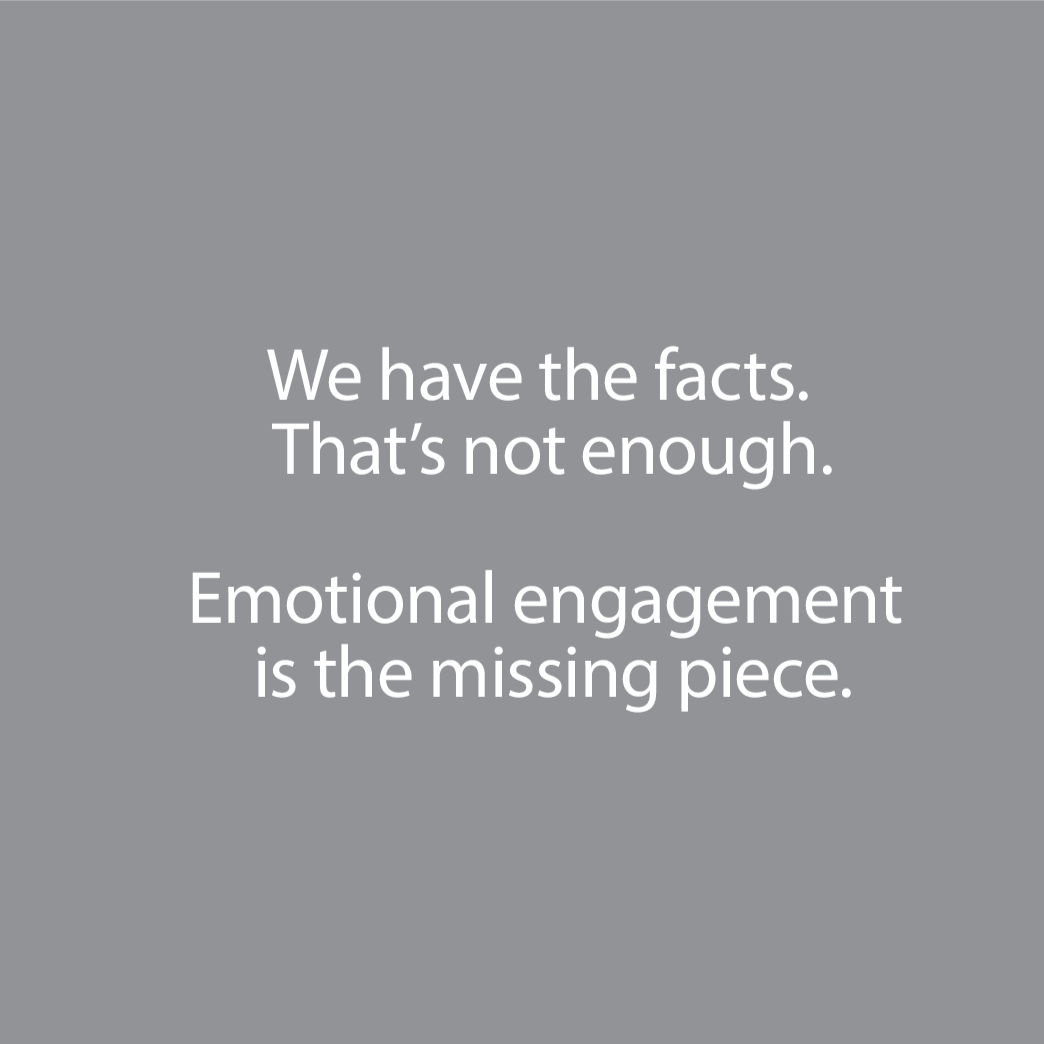‘Multi-Sensory Climate Center’
The real world is a multi-sensory place.
We don’t experience life as a smell. Or a scent.
Our experience is informed by all five of the known senses.
And by something deeper we cannot name.
We don’t just know and think.
We also feel our way through life as much as we think it through.
Emotions matter. More than we think.
The science is incontrovertible.
Despite the facts, some people want to deny reality.
The Flat Earth Society is still accepting members.
The Intergovernmental Panel on Climate Change (IPCC) has issued six major reports since 1990, convened more than 18 meetings. More than 60,000 scientists have played a role in its work.
This global team studies everything from warming ocean currents to changing insect migration patterns; from threats to public health to the manufacturing of cement; from the methane in cow burps to the Atlantic Meridional Overturning Circulation.
It may be the most intensely studied topic in modern science.
Orfield Laboratories, Inc. (est. 1971) is the world's only independent, multi-sensory design research and consulting laboratory. Specializing in human perceptual comfort, performance, and preference, the lab consults on sensory issues as related to the fields of Architecture, Design and Product Development.
The lab's 15,000 sq ft. headquarters in Minneapolis consists of several labs, including a NIST-Accredited Acoustic Lab, equipped with an Anechoic Chamber and suite of three Reverberation Chambers, an Acoustic Simulation Lab, Visual Performance Lab, Lighting Simulation Lab, and Open Plan Office Lab.
Located in the historic Sound 80 Studios building, Orfield is recognized globally for four Guinness records; three for the Orfield Anechoic Chamber, which has been recognized since 2005 as "The Quietest Place on Earth" (Guinness, 2005, 2012, 2021) and the other in relation to Sound 80, which is recognized as "The World's First Digital Recording Studio" (Guinness, 2005).
Jonathan J. Halperin designs innovative strategies and communications solutions to help people and organizations drive systems change. Sharing tools and frameworks refined over decades of collaboration with small and large purpose-driven organizations, his approach enhances leaders’ capacity to deliver on mission and more effectively engage diverse stakeholders.
Examples of diverse client projects include guiding Children's Television Workshop's (Sesame Street's) entree into Russia, delivering results from survey research projects to Fortune 50 companies, expanding opportunities for the Equitable Food Initiative, repositioning Greyston Bakery (New York state’s first registered benefit corporation), facilitating James Beard Foundation food conferences, leading research at SustainAbility, and executive producing Hope in a Changing Climate to premier at COP 19 in 2009.
He serves on various boards and as advisor to numerous organizations including Ceres, the Washington Center for Psychoanalysis, and the NYU Center for Sustainable Business.
Facts matter. A lot.
But we don’t just know and think.
We feel our way through life as much as we think it through.
Public opinion research and analysis has revealed what people think about climate change — and about how people think they feel. Momentous advances in neuroscience notwithstanding, the human brain struggles to accurately report human emotions. And emotions are almost always better predictors of behavior than thoughts. Who hasn’t done something that we knew we shouldn’t, that we knew might not be the wisest choice; yet we felt compelled despite the brain flashing yellow lights?
Although we may not often think about how powerful emotions are, behavior tells the story.
Billions and billions have been spent on efforts to maintain a stable climate on Earth.
And An Inconvenient Truth was seen by ~28,000,000 Americans and won two Academy Awards.
Yet … planet earth still has a fever. And it is rising. We haven’t been able to bring the temperature back to normal.
We can break through the climate impasse and develop an entirely new narrative built on accurate measurements of human emotions — directly, before they are interpreted, or misinterpreted, by our thoughts about them.
As critically important as the science is, we need to ground public communications and engagement in the fundamental feelings that connect rather than divide us. Orfield Laboratories’ proven methodology for doing this creates a new opportunity to build sustained public engagement and demand for new policies that align with deeply seated emotional values and priorities.
Creating the Multisensory Climate Center will enable us to measure people’s emotional connection to climate change. The Center will draw people into an entirely new kind of sensory experience — revelatory and educational while also exciting and entertaining. And, critically important, the immersion will generate strong feelings — that we can measure.
We will learn what moves people, gaining critical insights into the emotional connections different demographic groups have with the climate crisis. Findings will serve as the foundation for communication strategies to drive change. We can build educational, advertising, and promotional campaigns grounded in enduring emotions.
We don’t have all the answers.
But despite incredible work and commitment and passion, planet earth still has a fever.
We haven’t been able to bring it back to normal, despite the facts.
We must change the narrative, addressing feelings and perceptions.
Will you join us?
Jonathan@JonathanJHalperin.com
Write us.
Tell us what you think of our approach, share your ideas, let us know how we can collaborate.







